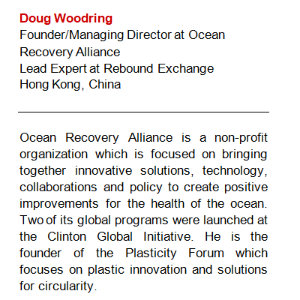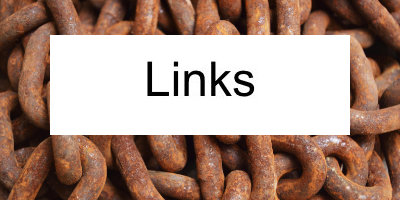
Marketplace Plastic
The Future Now Show
Books
Articles
Videos
Links
Voting
Members Dialogues
Live Events
Marketplaces
supported by ChatGPT
Please send your comments, ideas, contributions related to the Marketplace Plastic to
email ???
Global HUB Expert
Plastic is a synthetic or semi-synthetic material made primarily from polymers, which are long chains of molecules derived from natural resources such as petroleum, natural gas, or renewable biomass. It is known for its versatility, durability, and malleability, making it widely used in various industries.
the future of Plastic
The future of plastic is a significant concern for both urban environments and the natural world, particularly regarding the impact on cities, nature, water, oceans, and human and animal health. Here are key issues and potential directions:
Plastics in CitiesIn urban areas, plastics are deeply embedded in daily life, with plastic packaging, construction materials, and consumer goods. Over time, the accumulation of plastic waste has led to:
Landfills and Pollution
Improper disposal of plastic leads to large landfills, often overflowing and releasing harmful chemicals into the ground and air.
Microplastics
Urban pollution also contributes to the spread of microplastics, which enter the air, water, and food systems. As plastics break down into smaller pieces, they infiltrate almost every part of city life, from playgrounds to food chains.
Waste Management Challenges
Despite recycling initiatives, most plastics are not properly recycled. The systems for managing plastic waste are often inefficient or non-existent in many parts of the world.Plastics in Nature and Ecosystems
Plastics in natural environments disrupt ecosystems, with serious long-term consequences:
Soil Contamination
Plastics degrade into microplastics, affecting soil health, reducing water retention, and disrupting plant growth.
Biodiversity Loss
Wildlife, particularly marine animals, can mistake plastics for food. This leads to ingestion, which causes malnutrition, suffocation, or death. Toxins from plastics can also accumulate in animals, entering the food chain.
Habitat Destruction
Plastics can also suffocate habitats, particularly in marine environments, where large plastic debris can physically damage coral reefs or entangle wildlife.Plastics in Water and Oceans
The impact of plastics on water bodies is perhaps the most visible and alarming:
Marine Pollution
Every year, millions of tons of plastic enter the ocean, creating vast "garbage patches." These are massive accumulations of plastic waste, especially in regions like the Pacific Ocean, where the Great Pacific Garbage Patch is a notorious example.
Ocean Toxicity
As plastics break down in water, they leach toxic substances such as Bisphenol A (BPA) and phthalates, which can be absorbed by marine life, entering the human food chain.
Microplastic Infiltration
Microplastics are particularly dangerous because they are difficult to clean up and can be ingested by marine organisms, affecting their health and ultimately entering human diets through seafood consumption.The Danger to Mankind
Health Risks
Microplastics have been found in food, water, and air, posing potential risks to human health. These small particles can enter the body and may lead to diseases such as cancer, reproductive issues, and neurological damage.
Air Quality
Airborne microplastics can affect respiratory health. Since plastics are widespread in urban environments, people are continually exposed to minute particles from burning plastic or from degradation of plastic materials.
Global Warming
The production and disposal of plastics contribute to greenhouse gas emissions. Additionally, plastic waste in oceans can worsen climate change by disrupting marine carbon sequestration processes.
The Future: Is There Hope?
There are several efforts underway to mitigate plastic pollution:
Biodegradable Plastics
Innovations in biodegradable plastics could reduce long-term environmental damage. These materials break down more quickly and safely in nature.
Improved Recycling
More efficient recycling systems and technologies, such as chemical recycling, could help manage plastic waste better. However, most recycling technologies are still in their infancy.
Plastic-Free Alternatives
Companies and cities are experimenting with plastic alternatives like edible packaging, plant-based plastics, and reusable materials to reduce dependence on traditional plastics.
Policy and Regulation
Several governments and organizations are moving toward bans on single-use plastics and encouraging sustainable production practices. However, these efforts need to be scaled up and enforced globally to be truly effective.
In conclusion, the future of plastic is uncertain, but without significant changes in production, consumption, and waste management, plastics will continue to pose a grave risk to the environment, wildlife, and human health. The shift to more sustainable practices in both industry and consumer behavior will be crucial in mitigating these dangers.

The Future Now Show
Plastic Pollution Unwrapped
with Doug Woodring
Challenges and Opportunities
Doug Woodring has a unique business focus on the future of plastic sustainability, and how solutions, innovations, materials and opportunities can be scaled, for a world with a reduced waste footprint.He talks on the future of plastic, and where the leaders are going with design, innovation, materials, recycling and solutions, for a world with a reduced waste footprint.

Credits
Doug Woodring
Founder of Ocean Recovery Alliance
oceanrecov.org
Lead Expert for the Rebound Plastic Exchange
the Global Trading Platform for RECYCLED PLASTIC
reboundplasticexchange.com
top
Books
Here are some notable books and reports discussing the future of plastics globally, focusing on sustainability, innovation, and environmental impacts:
Influence of Microplastics on Environmental and Human Health:
Key Considerations and Future Perspectives
by Yvonne Lang
Microplastics have received increased attention in the research world over the last ten years. A number of significant publications by the World Health Organisation, European Union, SAPEA, and GESAMP have highlighted this growing environmental and health emergency.
Plastic Free: The Inspiring Story of a Global Environmental Movement and Why It Matters
by Rebecca Prince-Ruiz & Joanna Atherfold Finn
Chronicles the rise of the Plastic Free July movement and explores global efforts to reduce plastic waste, showcasing innovative solutions.
The Future of Packaging: From Linear to Circular
by Tom Szaky
Examines the shift from disposable packaging to sustainable alternatives. The book explores circular economy principles and innovations in packaging design to reduce plastic waste.
Plastic: A Toxic Love Story
by Susan Freinkel
A historical perspective on the use of plastics, highlighting their benefits and the environmental challenges they pose.
The New Plastics Economy: Rethinking the Future of Plastics
by Ellen MacArthur Foundation
A comprehensive report focusing on creating a circular economy for plastics, with insights into recycling, innovation, and the reduction of waste.
Can Plastic Be Sustainable? Understanding the Promise and Pitfalls of Bioplastics
by Anthony L. Andrady
Discusses the potential of bioplastics to replace traditional plastics, addressing technological, environmental, and economic challenges.
How to Give Up Plastic: A Guide to Changing the World, One Plastic Bottle at a Time
by Will McCallum
A practical guide to reducing plastic usage at an individual and systemic level, with an emphasis on global impacts.
Plastics and Sustainability: Towards a Peaceful Coexistence
by Michael Tolinski
Explores the balance between the utility of plastics and their environmental impact, emphasizing innovation and policy changes.
Break Free From Plastic Pollution: The Global Movement and What You Can Do
by Jay Sinha and Chantal Plamondon
Highlights grassroots and policy-driven efforts to address plastic pollution worldwide.
Plastic Game Changer: How to Reduce Plastic in your Organization to Make a Difference to Plastic Pollution
by Amanda Keetley
Plastic Game Changer is an inspirational, practical guide for professionals who want to do something meaningful to tackle the plastic pandemic.
top
ArticlesWWF Position: The Role of Reuse in a Circular Economy for Plastics
Spotting plastic waste from space and counting the fish in the seas: here’s how AI can help protect the oceans
by Philipp Bayer, Ahmed Elagali, Julie Robidart, The University of Western Australia, and Kate Marie Quigley, James Cook University
Disposable eco-friendly packaging
Next Generation Fluid Filtration
by ECOFARIO
Algae
Climate Change Success Story
Energy / CO2 / Food / Plastic
PlasticRoad
by VolkerWessels
The New ‘Plastics and Sustainability’ Report Should Be a Big Wake-Up Call
by Douglas Woodring WG95
Plastic pollution is a critical global issue, with numerous comprehensive reports analyzing its impact and proposing solutions. Here are some of the most influential reports on plastics:Global Plastics Outlook by the Organisation for Economic Co-operation and Development
by OECD
This report presents projections on plastics use, waste, and environmental impacts up to 2060. It emphasizes the need for policy actions to transition towards sustainable and circular plastic usage.
Plastic Pollution
by Our World in Data
This comprehensive analysis covers the history, production, and environmental impact of plastics. It provides data visualizations illustrating the scale of plastic pollution globally.
Plastics
by the European Environment Agency (EEA)
Plastics are everywhere — from food packaging to healthcare, construction materials, furniture and textiles. They are, unfortunately, also bad for the environment. They are not only polluting the seas and land, but also contributing to climate change and air emissions.
The Circular Economy for Plastics – A European Overview
by Plastics Europe
The report is a contribution towards a better understanding of the circular economy of plastics in the EU27 + Norway, Switzerland and The United Kingdom. It provides a European overview of 2020 plastics production, conversion, consumption and waste flows. It also addresses the production of recycled plastics and their use in different sector applications in Europe. Additionally, it evaluates how the circular economy of plastics has evolved in the EU27+3 compared to 2018.Plastic Pollution Around the World
by the Geneva Environment Network:
This resource provides insights into the ubiquity of plastic pollution across various ecosystems and discusses international cooperation efforts to tackle the crisis.
Size and Impact of the Plastics Industry on the U.S. Economy
by the Plastics Industry Association:
This report analyzes the U.S. plastics industry's size, growth, and economic impact, highlighting its significant role in employment and economic output.
Plastics: Material-Specific Data
by the U.S. Environmental Protection Agency (EPA):
Overview: This page describes the generation, recycling, combustion with energy recovery, and landfilling of plastic materials in the United States, providing detailed statistics and trends.

top
VideosPlastic Pollution Unwrapped
with Doug Woodring
Our oceans have learnt how to EAT PLASTIC!
by Just Have a Think
How to avoid microplastics in your food
by DW Documentary
Our Biggest Trash Catch Ever & More: The Ocean Cleanup 2024 in Review
by The Ocean Cleanup
top
LinksHere are leading organizations from each continent that are actively working on issues related to plastics, including recycling, reduction, and innovation:
North AmericaOcean Conservancy
USA
Reducing ocean plastic pollution through research, advocacy, and initiatives like the annual International Coastal Cleanup.
The Recycling Partnership
USA
Collaborates with governments and businesses to improve recycling systems and reduce plastic waste.
Canadian Plastics Industry Association
Canada
Advocates for sustainability in the plastics industry, including innovation in recycling and biodegradable materials.South America
Fundación Vida Silvestre Argentina
Argentina
Works on plastic waste reduction, conservation, and sustainable development in South America.
Recicleiros
Brazil
Promotes sustainable waste management practices, including plastic recycling initiatives.
Cempre (Compromiso Empresarial para el Reciclaje)
Brazil
A nonprofit organization promoting recycling and sustainable waste management in Brazil.Europe
Ellen MacArthur Foundation
UK
Driving a circular economy for plastics globally through the New Plastics Economy initiative.
PlasticsEurope
Belgium
Represents the plastics manufacturers in Europe, focusing on sustainability and innovation.
Waste & Resources Action Programme (WRAP)
UK
Works on reducing plastic waste and improving recycling systems in Europe.Africa
African Marine Waste Network
South Africa
Tackles marine plastic pollution across the African continent through research and advocacy.
End Plastic Pollution Africa
Ghana
Promotes education, policy advocacy, and action against plastic pollution in Africa.
Let’s Do It Africa
Part of the global Let’s Do It movement, focusing on cleanups and waste management in Africa.Asia
Plastic Bank
Philippines
Turns plastic waste into currency to fight poverty and reduce ocean plastic.
Clean India Mission
Swachh Bharat Abhiyan, India
Government-led initiative to reduce waste, including plastics, and improve recycling infrastructure.
China National Resources Recycling Association
China
Promotes recycling, including plastics, and supports policies for a circular economy in China.
Ocean Recovery Alliance
Hong Kong, China
Ocean Recovery Alliance is focused on entrepreneuring programs to reduce plastic pollution, both on land and water, by creating strategic solutions for governments, industry and communities which lead to long-term, hands-on business practices that engage. Our mission is achieved through purposefully designed programs to educate, build awareness and provide solutions which inspire positive societal change at the community, national and international levels.Australia & Oceania
Boomerang Alliance
Australia
Advocates for a zero-waste society by reducing single-use plastics and promoting recycling.
Plastic Oceans Australasia
Educates and advocates for reducing plastic pollution in oceans through community engagement.
WasteMINZ
New Zealand
New Zealand’s largest waste management organization, addressing plastic recycling and waste reduction.
Global OrganizationsUnited Nations Environment Programme (UNEP)
Leads global efforts to address plastic pollution through policy, innovation, and advocacy.
Greenpeace
Campaigns for systemic change in the production and use of plastics to combat pollution.
Here’s a list of leading companies globally that are driving solutions to address plastic-related challenges, focusing on recycling, alternative materials, and reducing plastic use:
Plastic Recycling Innovations
Loop Industries
Canada
Develops advanced recycling technologies to convert PET plastics and polyester fibers into high-quality, reusable materials.
Agilyx
USA
Specializes in chemical recycling to convert mixed plastics into raw materials like fuel or new plastics.
Veolia
France
A global leader in waste management and recycling, offering solutions for processing plastics into reusable materials.
Borealis AG
Austria
Produces polyolefins and supports circular plastics economy projects like the Borcycle platform for advanced recycling.Bioplastics and Sustainable Materials
NatureWorks
USA
Produces Ingeo™ biopolymer, a plastic alternative made from renewable resources like corn.
Novamont
Italy
Pioneers in biodegradable plastics, known for producing Mater-Bi®, a compostable plastic substitute.
TotalEnergies Corbion
Netherlands
Develops and produces PLA (polylactic acid), a biodegradable and biobased plastic.
Danimer Scientific
USA
Manufactures PHA (polyhydroxyalkanoates), a biodegradable plastic derived from plant oils.Circular Economy Leaders
Unilever
Global
Committed to reducing virgin plastic use and increasing recycled content in its packaging.
Initiatives: "Clean Future" program and refillable product systems.
PepsiCo
Global
Implements closed-loop recycling and alternative packaging materials like compostable snack bags.
Initiative: "PepsiCo Positive" sustainability agenda.
Nestlé
Global
Aims to make 100% of its packaging recyclable or reusable by 2025, focusing on innovative material development.
TerraCycle
USA
Creates platforms like Loop, a reusable packaging system to eliminate single-use plastics.Alternatives to Single-Use Plastics
Loliware
USA
Produces seaweed-based straws and tableware as sustainable alternatives to single-use plastic items.
Notpla
UK
Develops biodegradable and edible packaging solutions using seaweed and plants.
Ecoware
India
Creates 100% biodegradable and compostable products from agricultural waste.Technology Innovators
Carbios
France
Uses enzymatic recycling technology to break down plastics into raw materials for reuse.
Brightmark
USA
Converts plastic waste into energy and creates advanced recycling solutions.
Eastman Chemical Company
USA
Innovates molecular recycling processes for turning waste plastics into reusable polymers.Ocean Plastic Solutions
The Ocean Cleanup
Netherlands
Develops systems to remove plastic from oceans and rivers while preventing further pollution.
Bureo
Chile/USA
Collects discarded fishing nets to create recycled plastic products like skateboards and eyewear.
top
Voting
top
Members Dialogues
top

Live Events
Copyright © 2002-2025, Felix Bopp. All rights reserved.










